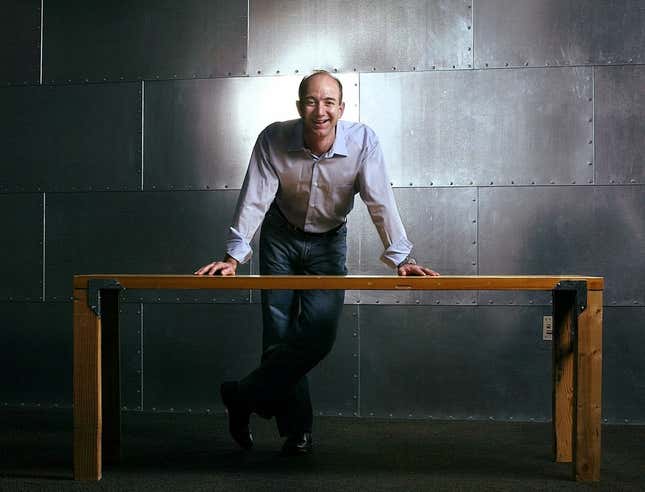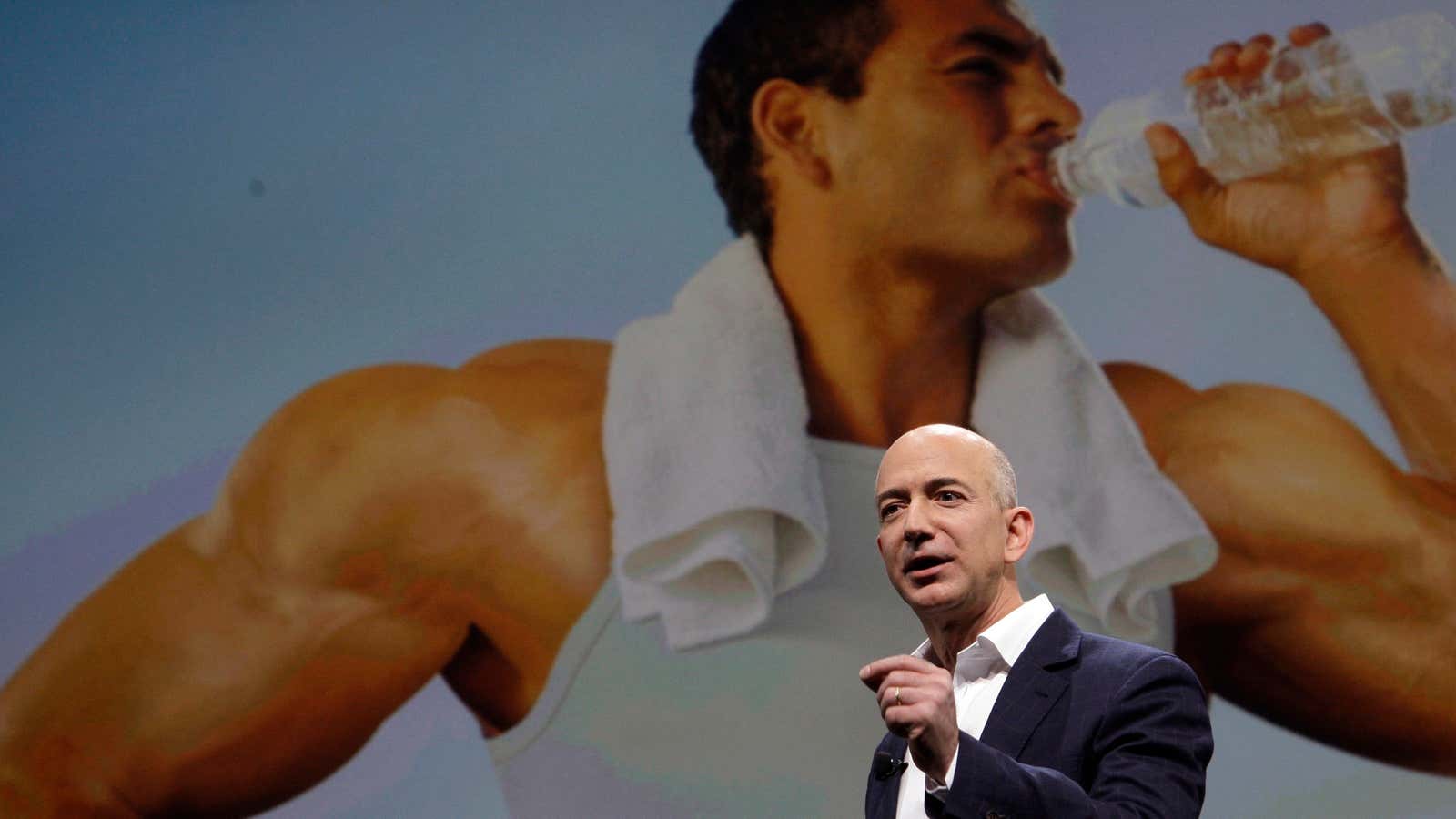Jeff Bezos just bought the Washington Post. His open letter to the employees of the Post says that change is coming to the paper, the sort that “would have happened with or without new ownership,” because “The Internet is transforming almost every element of the news business: shortening news cycles, eroding long-reliable revenue sources, and enabling new kinds of competition, some of which bear little or no news-gathering costs.”
Amazon is famous for its frugal internal culture, which is one reason the company is able to continually undercut competitors and increase revenue, if not profits. Given that the Post is competing with players who “bear little or no news-gathering costs,” i.e. blogs and aggregators like the Huffington Post, it seems hard to imagine that Bezos won’t encourage the Post to trim its balance sheet to reflect the difference in cost between traditional news gathering and simple news regurgitation.
Borrowing a page from Amazon’s playbook, here’s what that might look like:
Desks made out of doors

From its earliest days, Jeff Bezos made every employee work at a desk made out of an actual door. The idea was that the company was so frugal it was looking to save money any way it could, and forcing employees to work at door desks—some of whom got carpal tunnel from the resulting terrible ergonomics—was a good way to instill this value.
My sources at Amazon say that the company still insists on giving new employees a desk made out of a door. Regardless of whether the company is actually saving money through this measure, it demonstrates Bezos’s absolute commitment to frugality. Indeed, every year Amazon gives out a “Door Desk Award” to employees who have ideas that helps the company save money.
Frugality as a useful design constraint
“Frugality” is one of Amazon’s 14 leadership principles, leading to “resourcefulness, self-sufficiency and invention.”
Vending machines without lightbulbs
Vending machines in Amazon’s cafeteria had their lightbulbs removed, leading to $20,000 a year in energy savings. The company has roving “Earth Kaizens” tasked with finding ways to save energy, ostensibly to help the environment.
Robots and e-readers

Amazon dropped $775 million on Kiva systems, a maker of robots to manage warehouses. Given Bezos’s stated commitment to good journalism, it’s hard to imagine that the Post will turn into, say, a clone of Narrative Science, a company that uses software to write news stories from databases of automatically-ingested facts. But perhaps Kiva robots will start showing up in the Post’s warehouse and distribution systems for physical newspapers. Assuming, of course, that the Post doesn’t simply give all subscribers an oversize Kindle DX or something even more exotic like a flexible e-reader.
Good compensation for valuable employees, but sub-par retention policies
It’s an open secret at Amazon HQ that even engineers are expected to work long, hard hours, and they are paid the kind of above-market rates that attract them in droves. While companies like Facebook and Google obsessively monitor the happiness of their employees, Amazon’s overall culture of hard work is more likely to reward those who appreciate the fact that the company is still very much a startup. The SEC filing on this sale indicates that Post employees can expect to continue their current benefits and salary at least through 2014.




